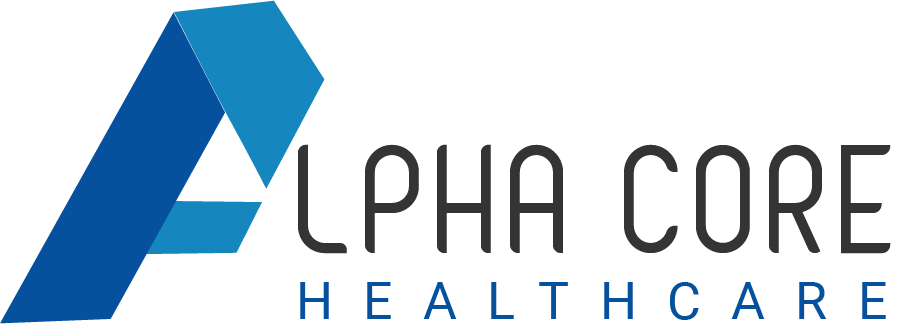Revenue Cycle Management in Healthcare Explained: What Every US Medical Practice Needs Now
If you’re a medical practitioner in the US wanting to enhance your cash flow, minimize errors in billing, and optimize operations, revenue cycle management (RCM) is your solution. In this guide, we will discuss everything from the fundamentals of revenue cycle management in healthcare to how to select the best revenue cycle management companies USA suited to your purpose.
- Published: 21/07/2025

What is Revenue Cycle Management in Healthcare?
Medical billing revenue cycle management is the process that healthcare providers utilize to follow a patient care episode from appointment scheduling and registration through the ultimate payment of a balance. It encompasses the full spectrum of a patient account.
In plain language, revenue cycle management in healthcare sees to it that medical facilities receive reimbursement for their work. It combines medical billing, coding, insurance claim processing, and payment collection into a single system.
Why Revenue Cycle Management for Medical Billing is Necessary
With the competitive and compliance-focused healthcare landscape of today, having a well-coordinated revenue cycle management for medical billing is no longer discretionary—it’s imperative.
Here's why:
- Faster Payments: An efficient RCM process minimizes claim denials and shortens payment cycles.
- Fewer Errors: Compliant and automated billing minimizes manual errors and coding conflicts.
- Enhanced Patient Experience: Clarity in patient billing and simplified payment processes.
- Better Financial Health: Maximizes the collection of revenue, allowing providers to reinvest in enhanced care delivery.
Elements of Revenue Cycle Management in Healthcare
- Patient Scheduling and Registration
Accurate data collection begins at the front desk. Insurance verification and proper demographics are crucial.
- Medical Coding and Charge Capture
After the delivery of care, services should be coded accurately in terms of ICD-10 and CPT codes for processing claims.
- Claims Submission and Follow-up
Clean claims should be submitted to insurers promptly. Follow-up on denied or unpaid claims is crucial.
- Patient Billing and Collections
The patient is billed after insurance adjustments. Effective collection practices enhance recovery rates.
- Reporting and Analytics
RCM firms offer dashboards and reports to track KPIs such as Days in A/R, net collection rate, and denial trends.
Top Challenges in Revenue Cycle Management
- Denials and Rejections: Inaccurate codes, insufficient documentation, or lack of authorization.
- Compliance Issues: HIPAA and CMS rules change on an ongoing basis.
- Patient Responsibility: High deductible plans transfer greater expense responsibility to patients.
- Staff Training: Constant revisions in billing codes and payer policies necessitate continuous education.
How Revenue Cycle Management Companies USA Can Assist
Selecting from reputable Revenue Cycle Management Companies USA can revolutionize your billing and collections.
What Do RCM Companies Provide?
- End-to-End Billing Services
From patient eligibility verification to AR follow-up.
- Medical Coding
Accuracy and compliance are ensured by certified coders.
- Denial Management
Analysis, appeal, and process improvement to minimize future denials.
- Patient Engagement Tools
Portals, SMS reminders, and online payments to simplify the billing process.
- Analytics & Consulting
Insights to enhance revenue performance and detect leakages.
Top 5 Revenue Cycle Management Healthcare Companies in USA (2025)
Note: The market is dynamic, but here are some of the established companies and rising leaders:
- Change Healthcare
Provides end-to-end RCM, data analytics, and cloud billing solutions.
- R1 RCM
Hospital and large practice RCM, with AI-driven automation.
- GeBBS Healthcare Solutions
Offshore and onshore billing, coding, and denial management specialists.
- athenahealth
Embeds RCM in its cloud-based EHR solution for small to mid-sized practices.
- Alpha Core Healthcare (Emerging USA-based RCM company)
Private practice and physician group specialty, with tailored solutions through the use of technology and experienced teams as well as.
Advantages of Collaborating with Revenue Cycle Management Healthcare Companies
Outsourcing your RCM is a no-brainer:
- Lower Operating Expenses
No requirement to handle in-house billing staff or software.
- Scalability
As your practice expands, so does your billing infrastructure.
- Expertise Access
Keep current with regulatory updates and coding revisions.
- Quicker Reimbursements
Decrease Days Sales Outstanding (DSO) and enhance cash flow.
AI & Automation of Revenue Cycle Management
Next-generation revenue cycle management in healthcare relies more and more on AI applications and automation. These technologies:
- Identify Documentation Deficiencies
Avoid denials ahead of time.
- Predict Denials
Machine learning algorithms review payer behavior to identify high-risk claims.
- Chatbots & Virtual Assistants
Educate patients about bills, check balances, and accept payments.
- Automated Appeals
Simplify resubmissions of denied claims with templates and triggers.
In-House vs. Outsourced Revenue Cycle Management: What’s Better?
| Feature | In-House RCM | Outsourced RCM |
|---|---|---|
| Control | More direct control | Relies on partner transparency |
| Cost | High due to staffing & software | Predictable monthly costs |
| Scalability | Limited by internal resources | Easily scales as practice grows |
| Expertise | Dependent on internal training | Access to specialized professionals |
| Tech & Compliance | Needs regular upgrades | Providers stay updated automatically |
Verdict: Small and mid-sized practices often benefit more from outsourcing due to cost and efficiency, while large institutions may prefer hybrid models.
How to Choose the Right Revenue Cycle Management Company in the USA
When analyzing revenue cycle management firms USA, keep the following in mind:
- Experience in Your Specialty
Cardiology billing is not the same as dermatology billing. Request expertise in your specialty.
- Technology Stack
Do they employ AI? Do they interface with your EHR?
- Reporting & Transparency
Consistent access to analytics and KPIs is paramount.
- Compliance Measures
Make sure they are HIPAA-compliant and audit-ready.
- Client Support & Responsiveness
Communication is everything—request references and reviews.
The Future of Revenue Cycle Management in Medical Billing
The coming five years will witness revolutionary changes to revenue cycle management for medical billing:
- AI-Driven Real-Time Billing: Improved claim generation and submission.
- Increased Patient Financial Responsibility: More effective tools are required for estimating out-of-pocket expenses.
- Greater Regulatory Scrutiny: CMS and payers will demand cleaner, compliant submissions.
- Blockchain Integration: Secure, auditable billing trails could go mainstream.
Conclusion
Revenue cycle management in healthcare is not simply billing—it’s about making sure your practice prospers financially while you concentrate on patient care. Whether you’re an independent practitioner or a multi-location hospital network, a solid RCM process or reliance on reputable revenue cycle management companies USA can significantly enhance results.
If you still have questions about what Revenue Cycle Management in Healthcare is, recall this: it’s the financial pulse of your practice.
Frequently Asked Questions (FAQs)
Q1: What is revenue cycle management in healthcare, and why should it matter?
A: It is managing patient billing, insurance claims, and payments from beginning to end. It processes timely payment, eliminates errors, and improves financial well-being for healthcare providers.
Q2: Is outsourcing revenue cycle management a good option for small practices?
A: Yes. Outsourcing commonly saves money, improves accuracy, and lets providers spend time on care rather than paperwork.
Q3: How do I select between revenue cycle management healthcare firms?
A: Search for experience in your medical specialty, compliance requirements, adoption of technology, and clear reporting.
Q4: What’s the distinction between revenue cycle management and medical billing?
A: Medical billing is one aspect of RCM. RCM encompasses the whole process from patient scheduling to final payment receipt and reporting.
Q5: Can RCM firms reduce denied claims?
A: Definitely. Some firms specialize in denial management, analytics, and resubmission strategies to minimize rejections and accelerate collections.
Connect With Us
Have questions about credentialing, enrollments, or healthcare management? Our team is here to help.
- (302) 304-8686
- hello@alphacorehealthcare.com
- 3524 Silverside Rd, Wilmington, DE 19810, United States
Feel free to reach out to us. Required fields are marked *
Quick links
Contact Us
- (302) 304-8686
- hello@alphacorehealthcare.com
- 3524 Silverside Rd, Wilmington, DE 19810, United States
Copyright © 2026 Alpha Core Healthcare, All rights reserved.
